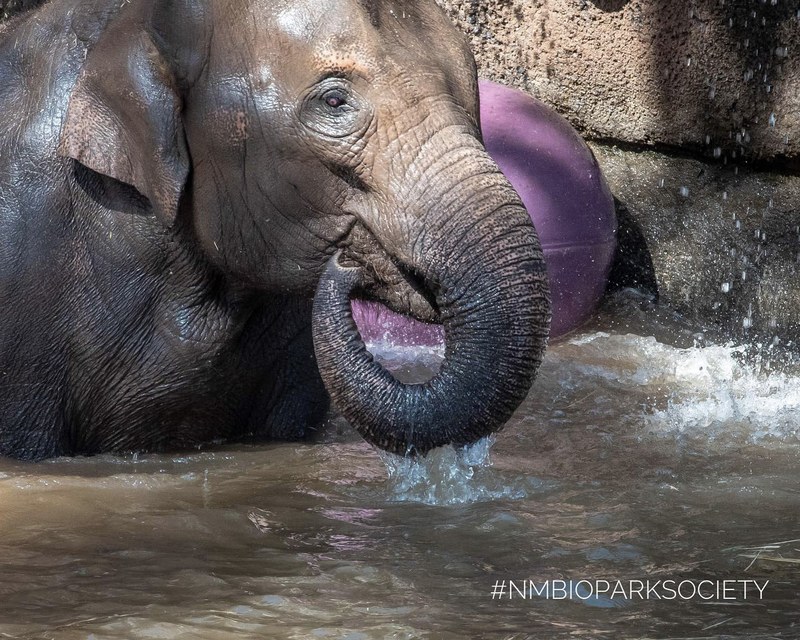
Second Asian elephant calf tests positive for virus
Second Asian elephant calf tests positive for virus
FREQUENTLY ASKED QUESTIONS:
What is Elephant Endotheliotropic Herpesvirus (EEHV)
EEHV is a herpesvirus that is present in some form in all elephants, both wild and those in human care. It causes hemorrhagic disease that can be fatal in young elephants. There are several strains of the virus.
All elephants can carry the virus in a latent state through their entire lives without negative effects. It is not known why the virus sometimes comes out of latency.
Elephants are most susceptible to the virus from 18 months to 8 years of age. In some cases, the virus load reaches a fatal level within a matter of days. EEHV is the largest single cause of death in Asian elephants in North America.
The virus was first identified in the 1990s. While a lot is still unknown about this virus, the body of knowledge continues to grow thanks to a network of researchers and AZA-accredited zoos. Detection methods have improved, and the best course of action is rapidly applied treatment. Several elephant calves have successfully recovered from EEHV infections in recent years.
Is EEHV related to COVID-19?
No. These viruses are not related.
Have any elephants at the BioPark ever had EEHV?
Yes, the BioPark sadly lost Daizy, a five year old female elephant in 2015 to EEHV.
What does the BioPark do to protect the elephant herd from EEHV?
Knowing that early detection is critical in giving an elephant their best defense against EEHV, the elephant care team at the ABQ BioPark tests blood samples from elephant calves Thorn and Jazmine every week to monitor for the EEHV virus.
All elephants have been trained to be an active member of their own healthcare. They voluntarily let the staff do everything from basic eye and ear exams to complex procedures such as ultrasounds.
Trust is essential, and the care team also trains the adult elephants to calmly observe the calves’ care.
What happened when EEHV was detected in Thorn and Jazmine's bloodwork?
Knowing how quickly EEHV can impact an elephant, the BioPark’s animal care staff immediately started daily blood tests and antiviral medication. Jazmine is being closely monitored for symptoms and changes in behavior.
Is EEHV always fatal?
No, but the animal care professionals at the ABQ BioPark are not taking any chances. Fortunately, over the past few years, the recognition, medical care and treatment of EEHV has improved exponentially. An elephant diagnosed with EEHV has a better chance of survival now than at any point since it was first identified.
How many elephants call the ABQ BioPark home?
The ABQ BioPark is at the forefront of elephant care and leading the way for other facilities with a multi-generational herd of Asian elephants and a unique rotating habitat system.
The herd at the ABQ BioPark consists of grandmother Alice; “Auntie Irene,” who is also the matriarch or leader of the group; mother Rozie; and two offspring, sister Jazmine and brother Thorn. Adult males go off to group-up with other males and find females. Albert is the current resident male.
